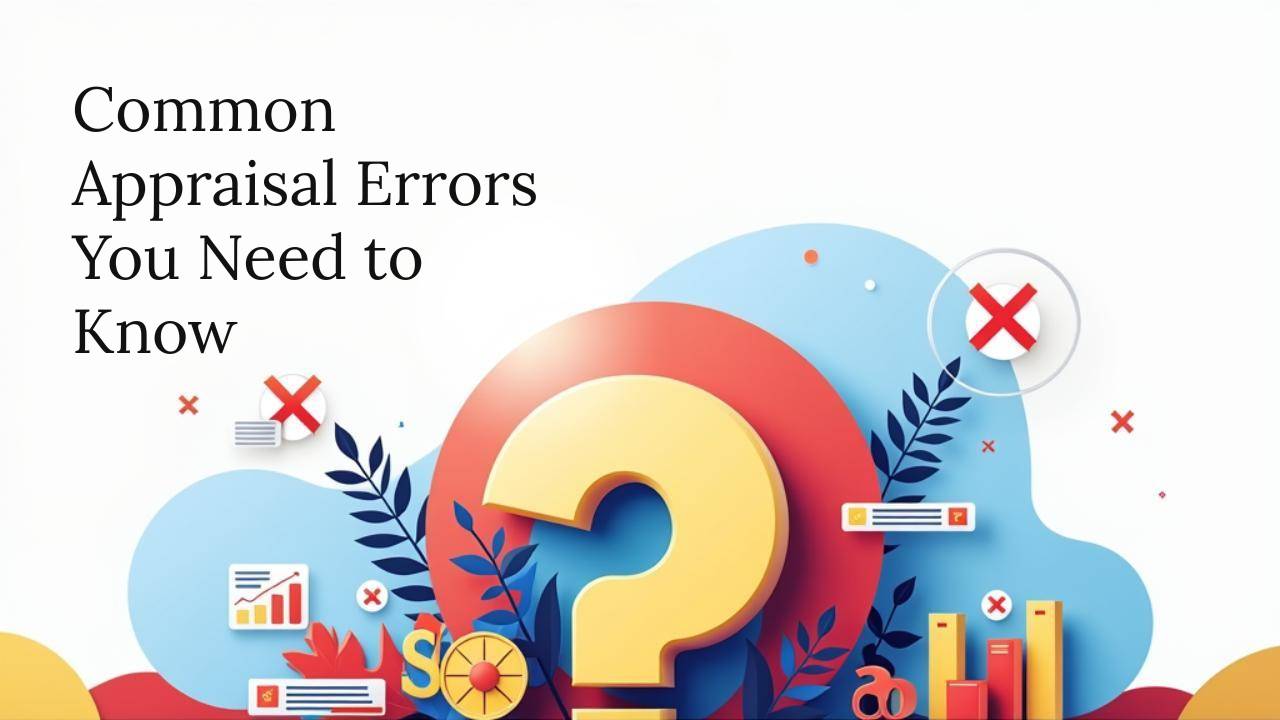Common Appraisal Errors and How to Spot Them

What Are the Most Common Appraisal Errors
And How to Spot Them Before They Cost You!
Home appraisals are meant to be impartial, accurate, and based on facts. But even certified professionals can make mistakes, especially when unfamiliar with the local market or working from limited data.
If you're buying, selling, refinancing, or involved in a legal matter like a divorce or settling an estate in West Michigan, it's important to understand:
What are the most common home appraisal errors and how can they affect your value?
Let’s break them down.
1. Poor Comparable Sales (Comps) Selection
This is one of the most impactful, and most common, appraisal mistakes.
The appraiser may:
- Use comps from different neighborhoods that don’t share the same appeal or demand
- Choose sales that are not truly similar in size, condition, or style
- Use non-arm’s-length sales (e.g. foreclosure or family transfers) that don’t reflect market value
🛑 In places like Grand Rapids, East Grand Rapids, or Ada, even being a few blocks off can mean a totally different pricing dynamic. Appraisers should be making adjustments, if warranted, to comparable sales that are not ‘model’ matches to the property being appraised.
2. Using Outdated or Inappropriate Sales Data
Markets shift quickly. If the appraiser uses sales from 6–12 months ago, or ignores more recent, relevant data, it can skew the value significantly.
💡 In rising markets, this can undervalue the home. In cooling markets, it might inflate the price leading to issues with lenders or buyers. Older sales can definitely be helpful in telling the story about market value, but adjustments should be made on the appraisal by the appraiser that accurately reflect those market changes.
3. Incorrect Square Footage or Room Counts
Misreporting the gross living area (GLA) is a surprisingly common error. This happens when:
- Finished basements are included incorrectly
- Enclosed porches or additions are misclassified
- Rooms or floors are measured inaccurately
In a price-per-square-foot market like Byron Center, Rockford, or Caledonia, small miscalculations can lead to big valuation differences.
💡 What to Do: Always review the final report for accuracy, especially on square footage and room counts. It’s ok to have small differences between what the assessor or MLS may indicate for square footage, but large discrepancies on the appraisal should be analyzed.
4. Missing or Overlooking Key Features
An appraiser unfamiliar with your home, or moving too quickly, might miss:
- A recent kitchen or bathroom renovation
- An upgraded HVAC system or roof
- A finished basement with egress windows
- Exterior features like decks, outbuildings, or fenced yards
These omissions can cause your home to be undervalued, especially when compared to properties that do have those features documented.
5. Misclassifying Condition or Quality
When it comes to appraisals for lending purposes, Appraisers rate homes based on condition (C1–C6) and quality (Q1–Q6). If your home is mistakenly rated too low (or too high), the value could be off.
For example:
- A well-maintained, updated home may be marked as “average” (C4) instead of “good” (C3)
- A basic builder-grade home might be overvalued as “high quality” (Q3 or Q2)
💡 Inconsistent ratings can lead to inappropriate adjustments when comparing to other homes. Be sure to check that the condition and quality ratings accurately reflect those aspects of the home being appraised.
6. Clerical or Reporting Errors
Simple mistakes like wrong property type, incorrect number of bathrooms, listing a crawlspace instead of a basement, can create issues with lenders or legal cases.
In more complex appraisals (like divorce, probate, or tax appeal), even minor reporting errors can cause unnecessary delays or legal challenges.
Why These Errors Matter
If you’re the homeowner or seller:
- You might get less than fair value for your property
- It could cost you thousands in equity or negotiating leverage
If you’re the buyer:
- You might overpay for a property that wasn’t appraised correctly
- Or run into problems with financing or underwriting
💡How to Avoid Appraisal Mistakes in West Michigan
✅ Work with a local appraiser who knows neighborhoods like Grand Rapids, Ada, Cascade, Caledonia, or Rockford inside and out.
✅ Prepare a packet with relevant property records, permits, updates, and comps you believe are relevant. The appraiser doesn't have to use any of that information, but it might be helpful to the appraisers who choose to take it.
✅ Review the final report carefully. If you notice errors, you can request a reconsideration of value with supporting evidence and additional comparable sales. Be careful: a reconsideration of value needs to be based on incorrect facts in the appraisal, new facts that may have been missed, and additional sales that you believe should have been considered.
✅ Final Thoughts
Appraisers are human and appraisals are supposed to be fact based and not ‘feelings’ based. While most appraisers in Kent and Ottawa County do excellent work, errors can and do happen. Knowing what to look for (and what’s at stake) helps protect your equity, your deal, and your peace of mind.
If you're dealing with a high-stakes situation like an estate, divorce, FSBO, or investment property in Kent County or the greater Grand Rapids area, choosing the right appraiser, and checking their work, can make all the difference.

